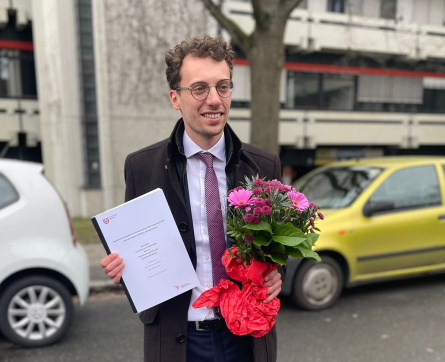
Simon Gerards Iglesias completed his doctorate in the project "Formation, Development and Reconstruction of the Welfare State in the Cono Sur in Exchange with (Southern) Europe (1850-1990), which was supervised by Delia González de Reufels. His doctoral thesis is entitled "Argentine Social Policy and the International Labour Organization, 1919-1943. Conflicts, Debates, and Cooperation".
In his work, Gerards Iglesias identified the most important actors of the time and, in his archival work, reconstructed which international influences affected their decisions. In this context, the International Labour Organisation, which opened its South American branch in Buenos Aires, plays a prominent role, intensifying the already lively exchange with Argentine actors. "The ILO acted as a platform and hinge of knowledge generation in [Argentine] social policy," says Gerards Iglesias. Large comparative studies, extensive archives and libraries were important factors in this.
However, the ILO only had an indirect influence on the shaping of Argentine social policy: "[In Argentina] conventions were ratified very late and only implemented in certain areas," says Gerards Iglesias. "There was a cherry picking of conventions for the areas where there were already very sophisticated laws. As a result, the conventions usually had neither a positive nor a negative impact on Argentine legislation."
Simon Gerards Iglesias had been a member of SFB 1342 since 2019. Now he is joining the German Economic Institute in Cologne.
Contact:
Simon Gerards Iglesias













